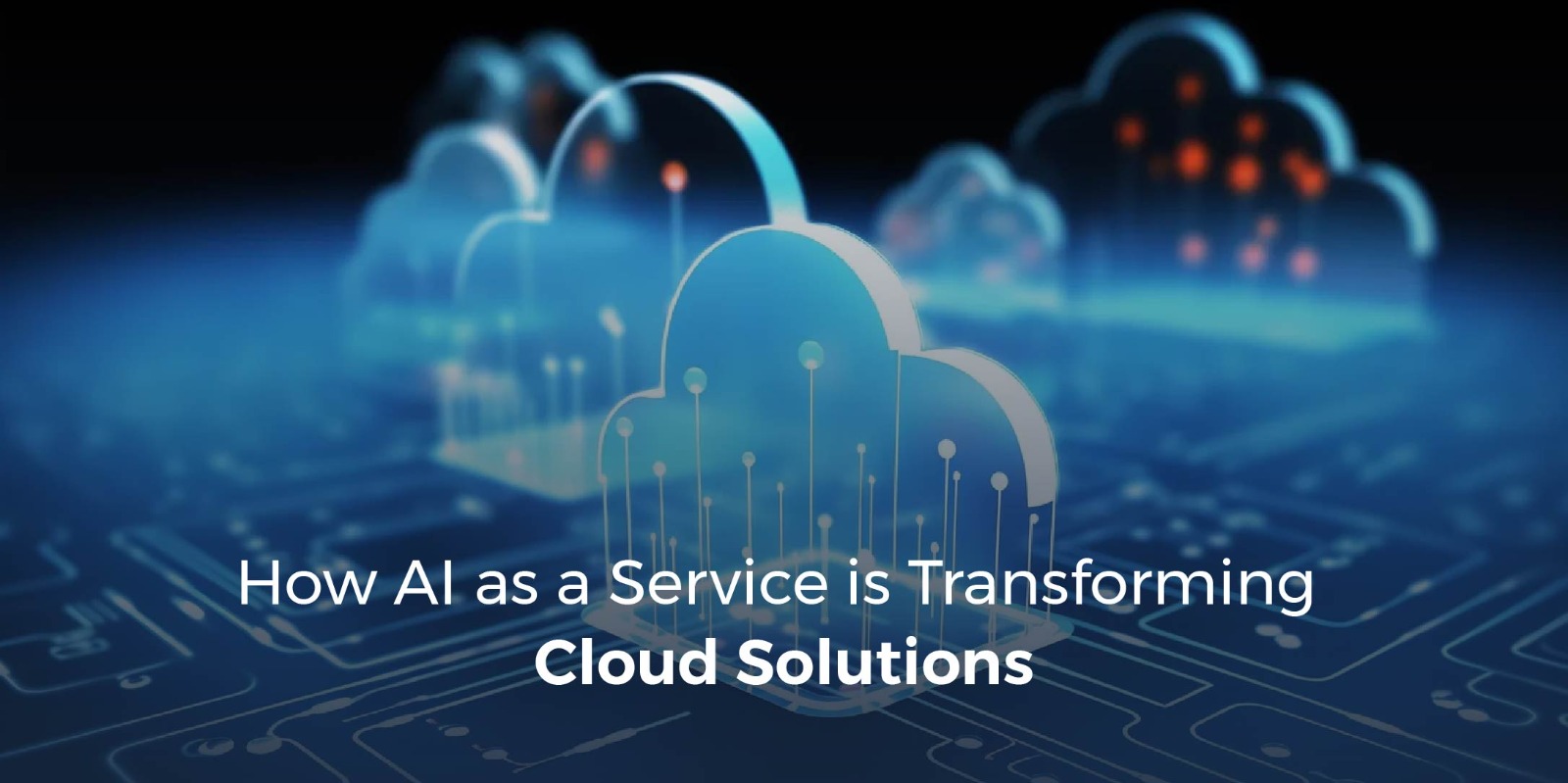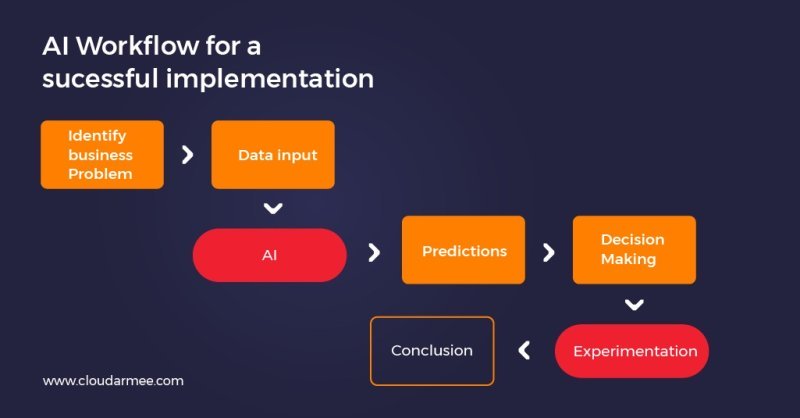
The advent of Artificial Intelligence (AI) has brought about a significant transformation in the world of technology and business. According to a survey by Microsoft in partnership with IDC, 71% of respondents say their companies are already using AI. It also says that organizations are realizing a return on their AI investments within 14 months.
AI has proven to be a game-changer in various industries, from healthcare to finance, and from e-commerce to manufacturing. To harness the power of AI, companies have increasingly turned to cloud solutions, and one of the most notable innovations in this space is AI as a Service (AIaaS).
Artificial Intelligence as a Service (AIaaS) represents a cloud-based solution that extends the availability of outsourced Artificial Intelligence (AI) capabilities. AIaaS empowers both individuals and enterprises to engage with AI, experiment with its potential, and even employ AI at scale without the constraints of high risk and substantial initial financial commitments. Its user-friendly approach makes it feasible to explore diverse public cloud platforms, services, and machine learning algorithms.
Another noteworthy dimension of AIaaS lies in the cloud provider’s ability to furnish specialized hardware and software bundled with the service. Consider computer vision applications, which demand substantial computational power and often rely on specialized hardware like Graphical Processing Units (GPUs) or Field-Programmable Gateway Arrays (FPGAs). Acquiring and managing the requisite hardware and software to kickstart an AI venture can pose a significant financial barrier for many organizations. With AIaaS, an enterprise can access AI services integrated with the entire infrastructure necessary to support their operations.

One prevalent category of AIaaS encompasses digital assistants, enabling organizations to implement functionalities such as virtual assistants, chatbots, and automated email response services. These solutions leverage Natural Language Processing (NLP) to gain insights from human interactions. They find extensive use in areas such as customer service and marketing applications.
AIaaS solutions feature APIs that facilitate the seamless integration of AI capabilities into software applications. Developers can easily incorporate AIaaS APIs into their code, unlocking access to robust functionality with minimal effort.
Many AIaaS APIs boast NLP capabilities. For instance, they allow software programs to submit text through the API, enabling functions like sentiment analysis, entity extraction, knowledge mapping, and translation.
Other APIs extend support for computer vision capabilities, enabling applications to submit user images for intricate tasks such as face detection, recognition, object detection, or in-video search.
Machine Learning frameworks provide developers with the tools necessary for constructing their AI models. However, deploying these models can be intricate, and they often lack a comprehensive machine learning operations (MLOps) pipeline. In essence, these frameworks enable model creation but necessitate additional tools and manual steps for testing and production deployment.
AIaaS solutions offered in a Platform-as-a-Service (PaaS) model deliver fully managed machine learning and deep learning frameworks. These frameworks offer an end-to-end MLOps process, allowing developers to assemble datasets, construct models, conduct training and testing, and seamlessly deploy them in the service provider’s cloud infrastructure.
Fully managed Machine Learning services provide the same capabilities as machine learning frameworks but eliminate the need for developers to craft their AI models from scratch. Instead, these AIaaS solutions feature pre-built models, customizable templates, and no-code interfaces. They are particularly advantageous for organizations lacking development tools and in-house data science expertise.
AIaaS democratizes AI technology by making it accessible to organizations that may not have the resources or expertise to develop and maintain their AI systems. This democratization enables startups, small and medium-sized enterprises (SMEs), and even individuals to tap into the power of AI for their specific needs. With AIaaS, businesses can focus on their core competencies while leaving the AI development and maintenance to experts.
Building and maintaining AI infrastructure in-house can be a resource-intensive and expensive endeavour. AIaaS eliminates the need for significant upfront investments in hardware and software. Instead, businesses can scale their AI capabilities up or down as needed, paying only for the resources and services they use. This cost efficiency is a significant advantage, especially for businesses with fluctuating AI workloads.
AIaaS platforms offer a wide range of pre-built AI models and tools that can be easily integrated into applications. This accelerates the development process, allowing businesses to roll out AI-driven solutions faster. The availability of these pre-trained models and APIs reduces the time required for training and fine-tuning AI algorithms, resulting in quicker time-to-market.
Flexibility and Scalability
Cloud-based AI services provide the flexibility to scale AI resources as needed. Businesses can start with a small-scale project and expand their AI capabilities as their requirements grow. This scalability is particularly valuable for businesses that experience seasonal variations in AI workloads or need to adapt quickly to changing market conditions.
Integration with Existing Systems
AIaaS platforms are designed to integrate seamlessly with existing software and systems. This means businesses can leverage AI without disrupting their current workflows. Whether it’s integrating AI-powered chatbots into customer support or enhancing data analytics, AIaaS allows for smooth integration without the need for extensive reengineering.
The fusion of AI and cloud technology opens up boundless prospects for technological progress. AI as a Service (AIaaS) is transforming the landscape of cloud solutions, offering businesses a more accessible, cost-effective, and efficient way to harness the power of artificial intelligence. As AI continues to advance and permeate various industries, the role of AIaaS will become even more crucial. The synergy between AI and cloud computing is strikingly illustrated by the impressive functionalities exhibited by smart digital assistants such as Siri, Amazon’s Alexa, and Google Home. CloudArmee integrates AI in its cloud-agnostic solutions to position businesses for success.